News and Highlights
Read more about EHHD highlights from 2013-2014
Mica Jenkins, a Sustainable Food Systems graduate student, wins Fulbright to study in Mozambique
June 19, 2014 -- Tanya Reinhardt, MSU News Service
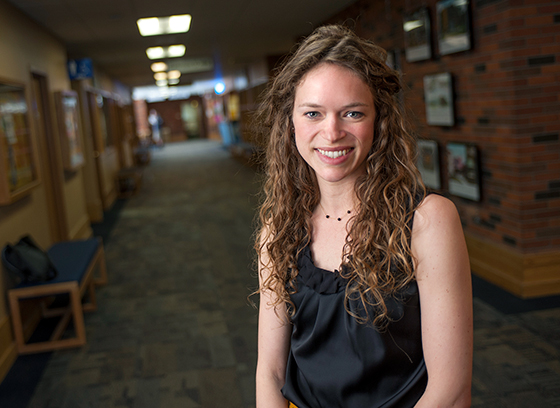 BOZEMAN—Mica Jenkins, a Montana State University, graduate student in sustainable
food systems from Lenoir City, Tenn., has received a Fulbright scholarship to study
how health and nutrition can be improved in Mozambique.
BOZEMAN—Mica Jenkins, a Montana State University, graduate student in sustainable
food systems from Lenoir City, Tenn., has received a Fulbright scholarship to study
how health and nutrition can be improved in Mozambique.
Jenkins said she was excited to learn about the Fulbright and is looking forward to returning to Mozambique where she has already spent a year working with impoverished communities. As a Peace Corps volunteer Jenkins worked on a Junior Farmer agricultural development project with World Vision.
“In 2010, I worked with agricultural experts in Mozambique teaching conservation practices and farming techniques that included crop rotation and minimal tillage. As part of the Junior Farmer program, we encouraged crop diversification by including peanuts, cow peas and vegetables in addition to corn,” said Jenkins who learned to speak Portuguese, an official language in Mozambique, while studying in Brazil as an undergraduate.
While with World Vision, Jenkins made connections with educators from the International Potato Center and developed an interest in sweet potatoes. “I was showing people how to cook, juice and bake with orange sweet potatoes,” Jenkins said. “Although my main job was developing junior farmer groups, I occasionally got to help promote the health benefits of eating the orange-flesh variety at community events and health fairs.”
“Mica is an exceptional student who demonstrates advanced critical thinking skills, problem-solving capabilities, and a commitment to learning everyday in the vast field of food systems,” said Jenkins’ academic adviser, Carmen Byker, who is an assistant professor in the Department of Health and Human Development. “Paired with her previous cultural experiences Mica is poised to lead and make large contributions to an important area of research in food, agriculture, and nutrition.”
UNICEF reports vitamin A deficiencies affect 69 percent of Mozambican children under the age of five, and 11 percent of mothers, weakening their immunity against infection. Jenkins project is aimed at mitigating the deficiency through diet.
“White sweet potatoes are traditionally grown and consumed in Mozambique,” Jenkins said. “But a large percent of the population has vitamin A deficiency and by increasing the growth and consumption of orange sweet potatoes, we can help reduce those deficiencies.”
Jenkins plans to live in Maputo, the capital of Mozambique which is on the southeastern coast of Africa, and from there plans to visit six different provinces.
“My research will include surveys, interviews and focus groups with people in different communities to see which varieties of potato they prefer and which are drought tolerant,” Jenkins said.
According to the World Vision website, 70 percent of the Mozambique population live below the poverty line.
“I think it is important to think about sustainable agricultural development in terms of the local context,” said Jenkins who is passionate about helping the populace in Mozambique where most farmers rely on rainfall instead of irrigation.
“This project will encourage Mozambican farmers to mingle new methods and techniques with existing practices. People have to eat and get by day to day, so there is no way to replace an entire agricultural system. We can, however, make incremental changes over time,” Jenkins said.
According to Byker, findings from this project could significantly impact Mozambique and the world’s knowledge about the adoption, implementation and maintenance of this type of sweet potato.
Jenkins earned her undergraduate degree from the University of South Carolina in 2007, and then spent two years with the Peace Corps in the Dominican Republic where she became fluent in Spanish.
“I found MSU online,” said Jenkins who came to MSU in 2013 to study sustainable foods and agricultural systems with Carmen Byker, assistant professor in the Department of Health and Human Development.
“MSU offered the merger between agriculture and nutrition that I was looking for, and it included a wide variety of course options,” Jenkins said.
Jenkins plans to finish her classroom requirements this fall before heading to Africa where she will spend nearly nine months in Mozambique.
“I am really looking forward to getting back to Mozambique,” said Jenkins who hopes to continue working in international agricultural development.
Contact: Carmen J. Byker, (406) 994-1952, [email protected]
Health and Human Performance Students Conduct Research for the U.S. Ski Team
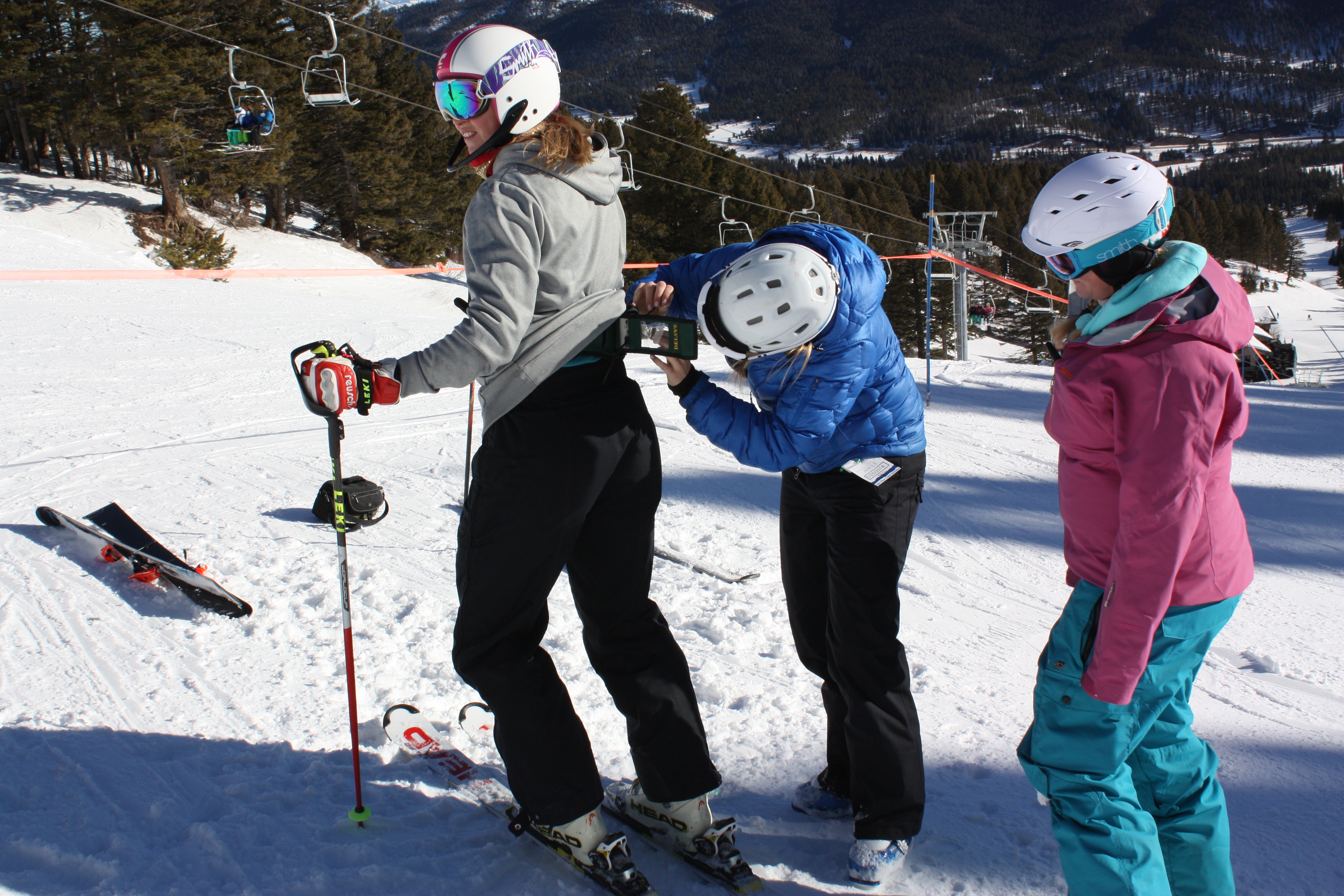
“By the time an advanced skier is 14, they should be able to ski proficiently on one leg,” said Harris. “The purpose of one-legged skiing is to train the muscles in the hip and knee to help with balance and ski edging.”
To test this, Harris had skiers ski the course both on one leg and two. After each run, she recorded information provided by the accelerometer and the EMG. The EMG had electrodes attached to leg muscles to determine muscle activation of six different muscles. The collected data was downloaded onto a computer and Harris said she would spend about 40 hours in the lab analyzing the data.
“The data will help determine if muscle activation from one–legged skiing is similar to two-legged skiing,” said Harris.
Becky Quigley, a first-year graduate student in sport and coaching science, assisted with the data collection, especially with the EMG. Quigley from Mt. Shasta, Calif., said she had used the instrument as an undergraduate in exercise science at MSU when she did a study on the differences of muscle activity in slalom versus giant slalom. The health and human performance program bought the EMG three years ago and Quigley was one of the first to master how to use it.
Ron Kipp, Alpine Sport Education Manager from the USSA, was also on hand to check out the research. Kipp has authored or co-authored over 20 scientific papers with Seifert and has a special respect for his knowledge of alpine skiing. Kipp is especially interested in the information from this study since one-legged skiing is used by the USSA’s SkillsQuest program. SkillsQuest is a program designed to target specific skills used in alpine ski racing. Using the two-legged skiing as a baseline, the results from the one-legged skiing can then be compared and further delineated into deficient skills, thereby enhancing the value of the SkillsQuest program.
Education Department Wins Number 1 Ranking in the State
December 11, 2013 -- MSU News Service
 Montana State University has earned the No. 1 spot on a list ranking the highest number
of graduates from postsecondary institutions in the state in the fields of education
and teaching.
Montana State University has earned the No. 1 spot on a list ranking the highest number
of graduates from postsecondary institutions in the state in the fields of education
and teaching.
MSU earned the top spot in the Online College Database’s “Shaping the Next Generation” category, which examined the number of education and teaching degrees awarded from postsecondary institutions in Montana. The Online College Database ranks colleges and universities in every state.
To determine the rankings, the Online College Database collected data on the number of graduates in the fields of education and teaching in 2012. To be eligible for the list, colleges and universities were required to be fully accredited, not-for-profit entities. They were also required to be four-year colleges and to have at least 10 graduates from education or teaching disciplines in 2012.
According to the database, MSU awarded 287 education degrees in 2012. The University of Montana earned the No. 2 spot, with 264 education degrees awarded.
The database noted that schools on the list “illustrate tremendous commitment to the youth of today and tomorrow via new teachers who graduate ready and willing to educate, inspire and lead.”
The MSU Department of Education offers undergraduate and graduate degrees in teacher preparation for elementary and secondary education, technology education, educational leadership, adult and higher education, and curriculum and instruction. It also offers the Troops to Teachers and Northern Plains Transition to Teaching programs for professionals in other careers who wish to move into teaching. MSU’s teacher education program enrolls more than 1,100 students.
More information on the rankings is available here.
MSU Education Professor, Jioanna Carjuzaa, Wins National Award for Excellence in Multicultural Education
November 15, 2013 -- MSU News Service
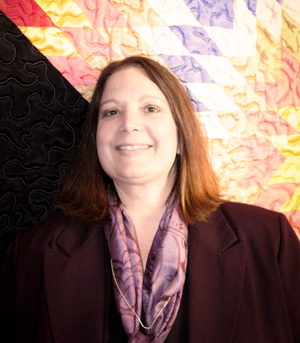 Montana State University education professor Jioanna Carjuzaa has received one of the nation’s top awards for commitment to and excellence in multicultural
education.
Montana State University education professor Jioanna Carjuzaa has received one of the nation’s top awards for commitment to and excellence in multicultural
education.
The G. Pritchy Smith Multicultural Educator of the Year Award is given for evidence of long-term, scholarly commitment to teaching from a multicultural perspective; addressing multiple facets of diversity in his or her work; and setting an example of multicultural ideals and practices. The National Association for Multicultural Education gives the award annually.
“Dr. Carjuzaa is a highly skilled and dedicated teacher, and she is an excellent choice for this award,” said Lynda Ransdell, Dean of the College of Education, Health and Human Development. “This is the top educator honor given by the National Association for Multicultural Education, and past winners include several of the leading educator-scholars in the field.”
For more than two decades, Carjuzaa has distinguished herself as a multicultural educator who promotes educational equity and dismantles social injustice. With her commitment to implementing culturally responsive pedagogy and the personal connections she has in Indian country, Carjuzaa is also considered one of the nation’s leading scholars on the implementation of Indian Education for All, according to the National Association for Multicultural Education. Indian Education for All is a constitutional mandate that aims to ensure that every Montanan, whether Indian or non-Indian, learns about the distinct and unique heritage of American Indians in a culturally responsive manner.
Carjuzaa said that culturally responsive pedagogy is designed to ensure everyone’s cultural heritage is valued and life experiences are validated.
“Culturally responsive pedagogy makes people aware there is nothing neutral about education,” she said. “It’s important that we all learn about our collective history.”
Since 2006, Carjuzaa has served as an associate professor at MSU, where she teaches courses in education and Native American studies. Prior to coming to MSU, she was a tenured professor at Linfield College in McMinnville, Ore., and Rocky Mountain College in Billings. She also taught at the University of Colorado and the University of Pennsylvania and has an extensive publishing record. Carjuzaa has a doctorate in multicultural, social and bilingual foundations of education from the University of Colorado-Boulder, as well as a master’s degree in multicultural education with an emphasis in linguistic diversity and a bachelor’s degree in journalism.
Carjuzaa said she is deeply honored to receive the G. Pritchy Smith Multicultural Educator of the Year Award because it brings attention to the important work of Indian Education for All.
“We’ve gotten a lot of attention internationally and nationally (for Indian Education for All),” Carjuzaa said. “This (award) is a wonderful way to celebrate the work that so many of us are doing here in Montana.”
More information about the G. Pritchy Smith Multicultural Educator of the Year Award and the National Association for Multicultural Education is available here.
Contact: Jioanna Carjuzaa, (406) 994-4941 or [email protected]
HHD professor Selena Ahmed wins grant to study how weather changes impact tea quality
October 18, 2013 -- Anne Cantrell, MSU News Service
 A Montana State University professor and other researchers have won a four-and-a-half
year, $931,000 grant from the National Science Foundation to study how long-term changes in weather and shifting patterns of precipitation
impact the quality of tea, farming communities and land-use strategies.
A Montana State University professor and other researchers have won a four-and-a-half
year, $931,000 grant from the National Science Foundation to study how long-term changes in weather and shifting patterns of precipitation
impact the quality of tea, farming communities and land-use strategies.
As part of their research, MSU health and human development professor Selena Ahmed and an interdisciplinary team of researchers will gather tea samples and analyze the chemistry and taste of tea, among other factors. Ahmed said she is particularly interested in learning how the health benefits of tea are changing and what management practices can best reduce risks associated with producing and distributing tea. The group will also examine the economic effects of changes in tea quality, Ahmed said.
“If the taste and chemistry of tea are so sensitive to the rains, how do shifting precipitation patterns of global climate change impact tea quality, farmer livelihoods and human well-being?” Ahmed asked.
Tea is a multi-billion dollar industry, Ahmed added, with many consumers choosing to drink it in order to receive health benefits.
In fact, today tea is the most widely consumed beverage in the world, second only to water, according to the University of Maryland Medical Center. Hundreds of millions of people around the world drink tea, which has been cultivated for centuries, beginning in China and India.
Green tea, in particular, is recognized for its many health benefits, Ahmed said, with green tea reportedly containing the highest concentration of powerful antioxidants called polyphenols. Antioxidants fight free radicals, or damaging compounds in the body that change cells, damage DNA, and even cause cell death. According to the University of Maryland Medical Center, many scientists believe that free radicals contribute to the aging process and the development of many health problems, including cancer and heart disease. Research suggests that antioxidants such as polyphenols in green tea can help prevent cardiovascular disease, burn calories and even ward off some types of cancer. And, the University of Maryland Medical Center reports that green tea has been used to help improve heart health, regulate body temperature and blood sugar, and promote digestion, among other uses.
In the United States, tea purchases have increased for 20 consecutive years and annual sales have surpassed $2.2 billion, according to the Tea Association of the USA, a New-York based industry group. The association says that on any given day, 160 million Americans drink tea.
Ahmed’s research into tea quality got its start seven years ago, when she was interviewing farmers for her doctoral research on how management choices and environmental factors affect tea quality in southwestern China’s Yunnan Province. Ahmed’s host mentioned that the tea they were farming had changed in taste over the years.
“It became clear to me that farmers were concerned about land-use change and climate change,” Ahmed said. “I began to collect evidence that these changes were impacting their food and tea systems, and that farmers perceived that such environmental and management changes impact the health benefits derived from crops.”
The farmers told Ahmed that over their lifetimes, they experienced hotter temperatures in the winters, with dry seasons becoming even drier. Then in the wet season, rains were becoming even more intense and extreme.
“Farmers are seeing tea buds burst earlier, so there is a longer harvest season, but because the rains are coming earlier in some communities, the precipitation can lead to a decrease in quality,” Ahmed said. “My preliminary research shows that antioxidant compounds that contribute to tea’s health benefits can decrease as much as 50 percent with the onset of the monsoons, while other compounds increase. It’s complex, and we are trying to elucidate patterns in this complexity.
“People don’t buy tea for yields; they buy it for its health benefits, sensory properties and for cultural purposes,” Ahmed added. “As a result, these changes in precipitation are impacting agro-ecosystems. They’re impacting people’s livelihoods.”
With the NSF grant, Ahmed will work with an interdisciplinary team of researchers from Tufts University and the University of Florida to gather and analyze tea samples from multiple sites in three provinces of China. Among the researchers are chemical ecologist Colin Orians, cultural anthropologist Rick Stepp, agricultural economist Sean Cash, analytical chemist Albert Robbat, and crop and soil scientist Tim Griffin. Ahmed is a co-principal investigator on the grant as well as the lead international investigator and project coordinator. The research is one of 21 projects funded this year by the National Science Foundation’s Dynamics of Coupled Natural and Human Systems program, which focuses on human interactions with the environment.
To gather the samples, Ahmed and Stepp will travel to the sites in China several times each year for three years. While there, they’ll record some data in the field, such as the size of the tea leaves, which can indicate how weather impacts the growth of the tea. Then, Ahmed will bring the samples back to MSU to analyze their main health compounds, which also influence taste. Meanwhile, her colleagues will analyze the samples for chemical compounds that are responsible for taste and smell to determine how climate may impact consumers’ decisions about tea.
During summer visits to China, Ahmed will also conduct hundreds of interviews with tea farmers and tea traders. She said the interviews will be focused on understanding farmers’ perceptions of weather patterns and changes in precipitation, as well as tea traders’ willingness to pay for tea on the basis of how they perceive tea quality. During those visits, Ahmed and Stepp will also be studying other sites to identify socioeconomic factors that enable communities to be more or less resilient to extreme weather events.
Lynda Ransdell, dean of MSU’s College of Education, Health and Human Development, called Ahmed a “bright, rising star” in the college.
Ransdell noted that in addition to her research into tea, Ahmed is also working on other research projects related to food and health.
“Selena is working on some local projects to examine the role of indigenous food systems in lessening the risks of chronic disease in Native American communities in Montana,” Ransdell said.
Ahmed is also recognized for her exemplary teaching skills in one of the college’s fastest-growing majors, sustainable food and bioenergy systems, Ransdell added.
For her part, Ahmed hopes that the research into tea quality will provide important information that will help people better manage agro-ecosystems in the face of environmental variations and risks associated with extreme weather.
“This research could influence management decisions – not just with tea, but with other crops as well,” Ahmed said. “If there’s a more sustainable way of growing crops, the information will have implications around the globe, including here in Montana.”
Contact: Selena Ahmed, (406) 994-5640 or [email protected]
Educational Leadership Student Among Handful Selected to Attend National Graduate Student Research Seminar
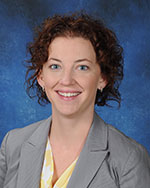 Kala Lougheed, a doctoral student in the educational leadership program at Montana State University, is one of 40 graduate students from around the world
who was recently selected to attend the 2014 David L. Clark National Graduate Student Research Seminar. The seminar, set for April 2-3 in Philadelphia, brings together emerging educational
administration and policy scholars and noted researchers for two days of presentations,
generative discussion, and professional growth.
Kala Lougheed, a doctoral student in the educational leadership program at Montana State University, is one of 40 graduate students from around the world
who was recently selected to attend the 2014 David L. Clark National Graduate Student Research Seminar. The seminar, set for April 2-3 in Philadelphia, brings together emerging educational
administration and policy scholars and noted researchers for two days of presentations,
generative discussion, and professional growth.
Lougheed is the first MSU student to attend the seminar.
Students from top-tier universities in the United States, Canada, and abroad compete for the opportunity to attend the seminar, which is sponsored by the University Council for Educational Administration, Divisions A and L of the American Educational Research Association, and SAGE Publications.
Exercise Physiology Graduate Student Wins 3rd Place at International Congress on Science and Skiing
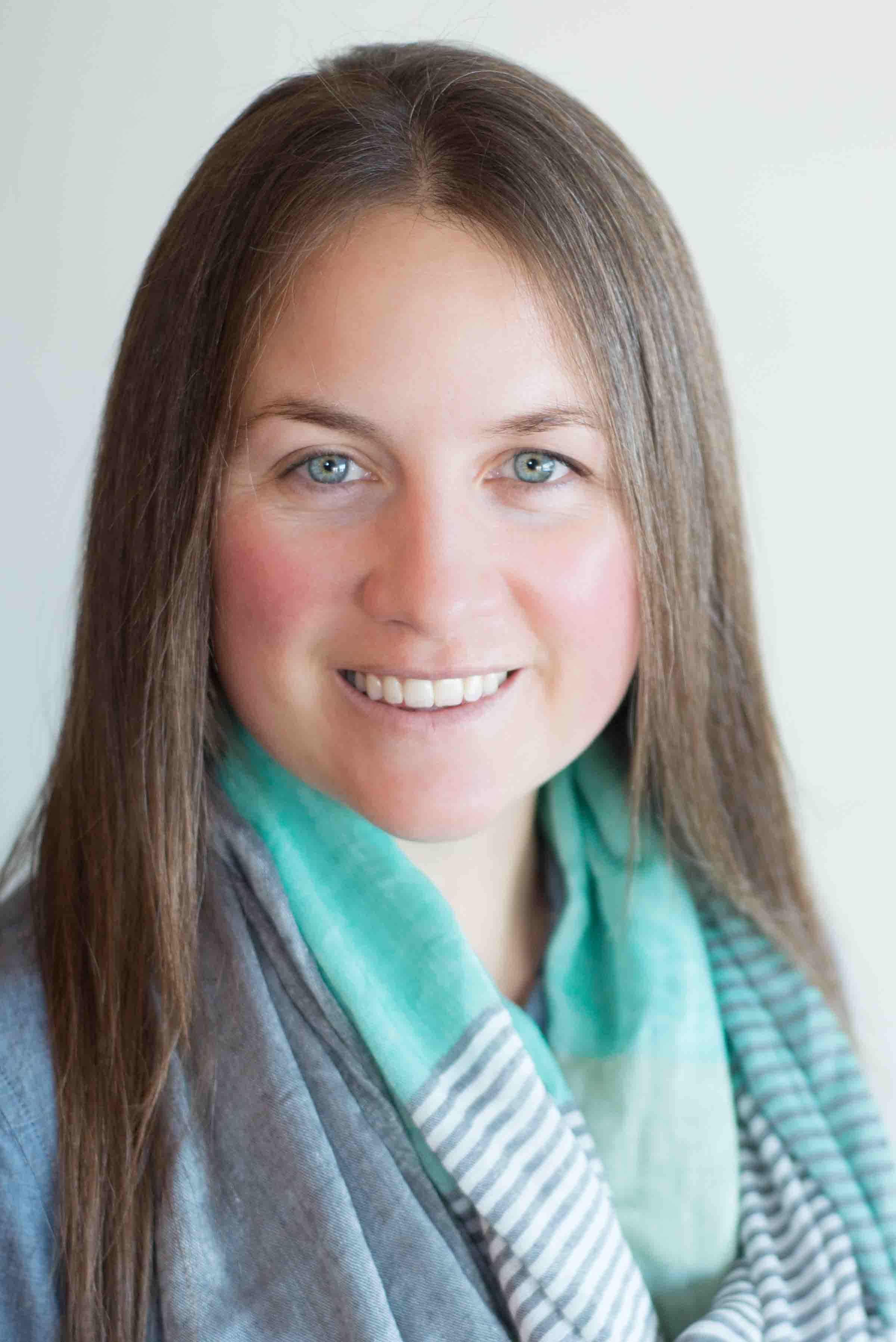 Erika Rauk, a graduate student in exercise physiology and nutrition in the Montana State University Department of Health and Human Development, recently won third place in the Young Investigator Awards contest at the International
Congress on Science and Skiing held in Austria. Rauk, who competed against young researchers
from all over the world, presented a poster on "The Influence of Slope Angle and Gate
Length during Slalom Training in Developing Alpine Ski Racers."
Erika Rauk, a graduate student in exercise physiology and nutrition in the Montana State University Department of Health and Human Development, recently won third place in the Young Investigator Awards contest at the International
Congress on Science and Skiing held in Austria. Rauk, who competed against young researchers
from all over the world, presented a poster on "The Influence of Slope Angle and Gate
Length during Slalom Training in Developing Alpine Ski Racers."
Rauk was also the recent 2013 Graduate Student Research Grant Winner from the Academy of Nutrition and Dietetics, Sports, Cardiovascular, and Wellness Nutrition. The grant will provide funds for research to compare high fructose corn syrup-sweetened beverages and glucose-sweetened beverages and their effects on exercise metabolism.
Rauk has a bachelor's degree in chemistry from the University of Montana and a bachelor's degree in food and nutrition from MSU. She also completed a dietetic internship through Idaho State University and has had her work published in the "Journal of Chromatography, Electrophoresis, and Analytical and Bioanalytical Chemistry."
John Seifert, MSU associate professor of health and human performance, is Rauk's mentor.
EHHD Establishes Scholarship Fund in Memory of Betsy Palmer
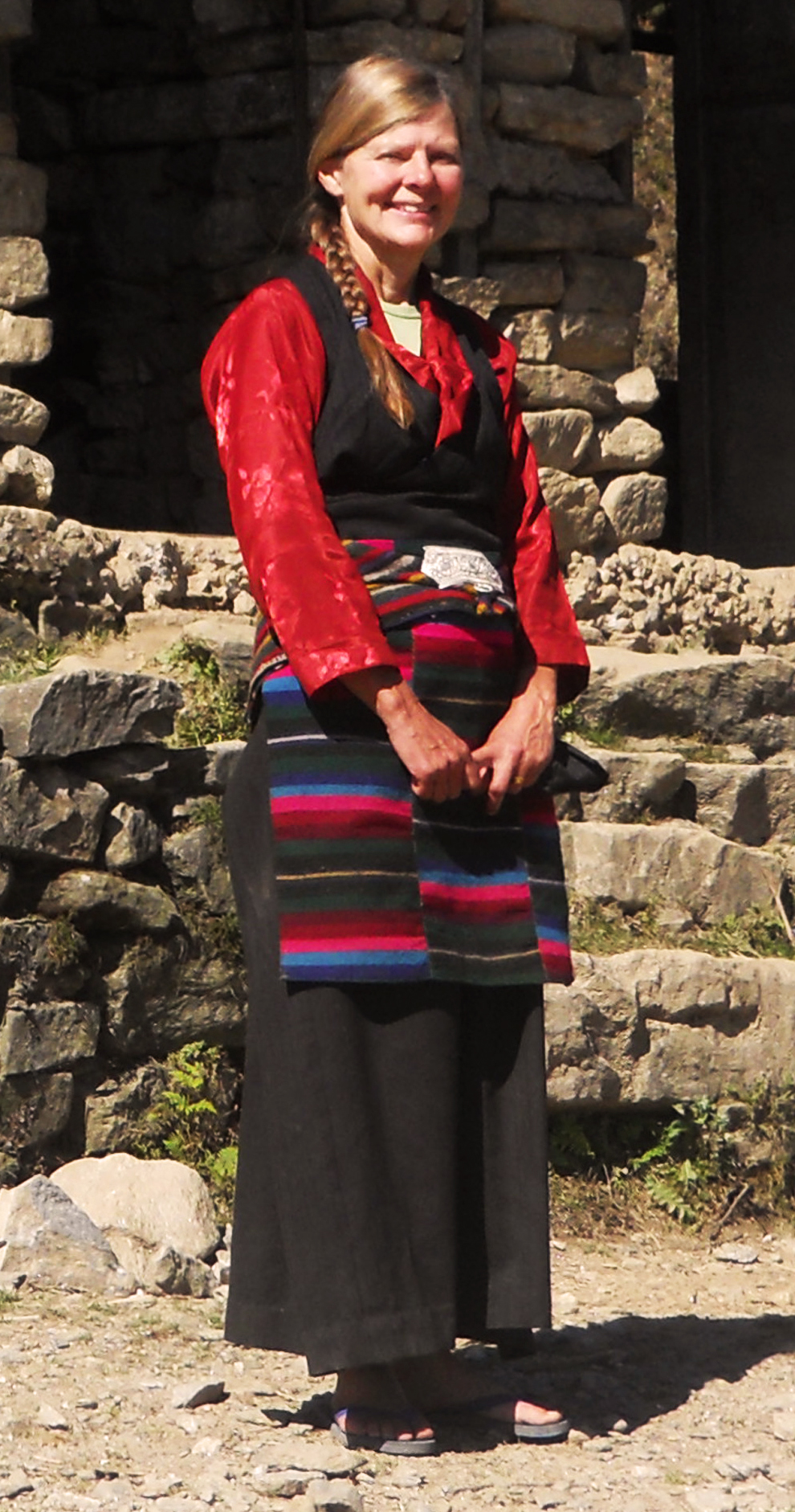 In May 2013, while leading a study abroad course in Nepal, associate professor of
adult and higher education Betsy Palmer tragically passed away as a result of injuries sustained during a trekking accident.
Palmer and a group of 16 MSU students were on an extended trek to a remote village
in the Arun River Valley in the Himalayas as part of “Great Expeditions,” a course
offered through University Honors Program. None of the students were injured in the landslide.
In May 2013, while leading a study abroad course in Nepal, associate professor of
adult and higher education Betsy Palmer tragically passed away as a result of injuries sustained during a trekking accident.
Palmer and a group of 16 MSU students were on an extended trek to a remote village
in the Arun River Valley in the Himalayas as part of “Great Expeditions,” a course
offered through University Honors Program. None of the students were injured in the landslide.
In memory of Palmer, the College of Education, Health and Human Development established a memorial scholarship fund to support graduate students. As a kick-off, the first annual College of EHHD Golf Clinic and Scramble fundraising event was held at Cottonwood Hills Golf Course. Faculty, staff, alumni, and some of Palmer’s graduate students attended the event, which successfully raised initial funds for scholarships. Through private donations and other fundraising efforts, the Betsy Palmer Fund will soon become fully endowed, thereafter granting scholarships to EHHD graduate students.
To make a gift to the Betsy Palmer Fund for Graduate Student Scholarships, please visit the MSU Alumni Foundation website.
Towne's Harvest Garden Adds New Locations to Increase Access to Fresh, Nutritious Produce
 Thriving since its inception during the fall of 2006, Towne's Harvest Garden, a 3-acre diversified vegetable garden located at the MSU Horticulture Farm, has continuously added new ideas and programs to broaden its reach. In addition
to selling community supported agriculture (CSA) shares to members of the MSU community,
Towne's Harvest now operates an on-campus farmstand during the summer growing season.
Every Thursday afternoon for 13 weeks, the student-run farmstand offers a variety
of discounted produce to faculty, staff, and students.
Thriving since its inception during the fall of 2006, Towne's Harvest Garden, a 3-acre diversified vegetable garden located at the MSU Horticulture Farm, has continuously added new ideas and programs to broaden its reach. In addition
to selling community supported agriculture (CSA) shares to members of the MSU community,
Towne's Harvest now operates an on-campus farmstand during the summer growing season.
Every Thursday afternoon for 13 weeks, the student-run farmstand offers a variety
of discounted produce to faculty, staff, and students.
Adding several new locations during 2013-2014, the Community Food Truck continues to prove successful in delivering low cost produce to rural Montana seniors who are at risk for food insecurity. Established in 2011, the Community Food Truck is designed to increase access to fresh, nutritious produce for seniors ages 50+ while also offering beneficial nutrition education. Funded by an AARP Foundation Hunger Innovation Grant, the Community Food Truck is a collaborative effort with the Gallatin Valley Food Bank and Bozeman’s Human Resource Development Council.
Towne’s Harvest Garden serves as a hands-on collaborative experience for the College of Agriculture and the College of Education, Health and Human Development. Within the College of EHHD, the garden provides teaching, research and outreach opportunities for programs such as sustainable food systems, food and nutrition, and the Montana Dietetic Internship.
I LEAD Project and Graduates Find Widespread Success
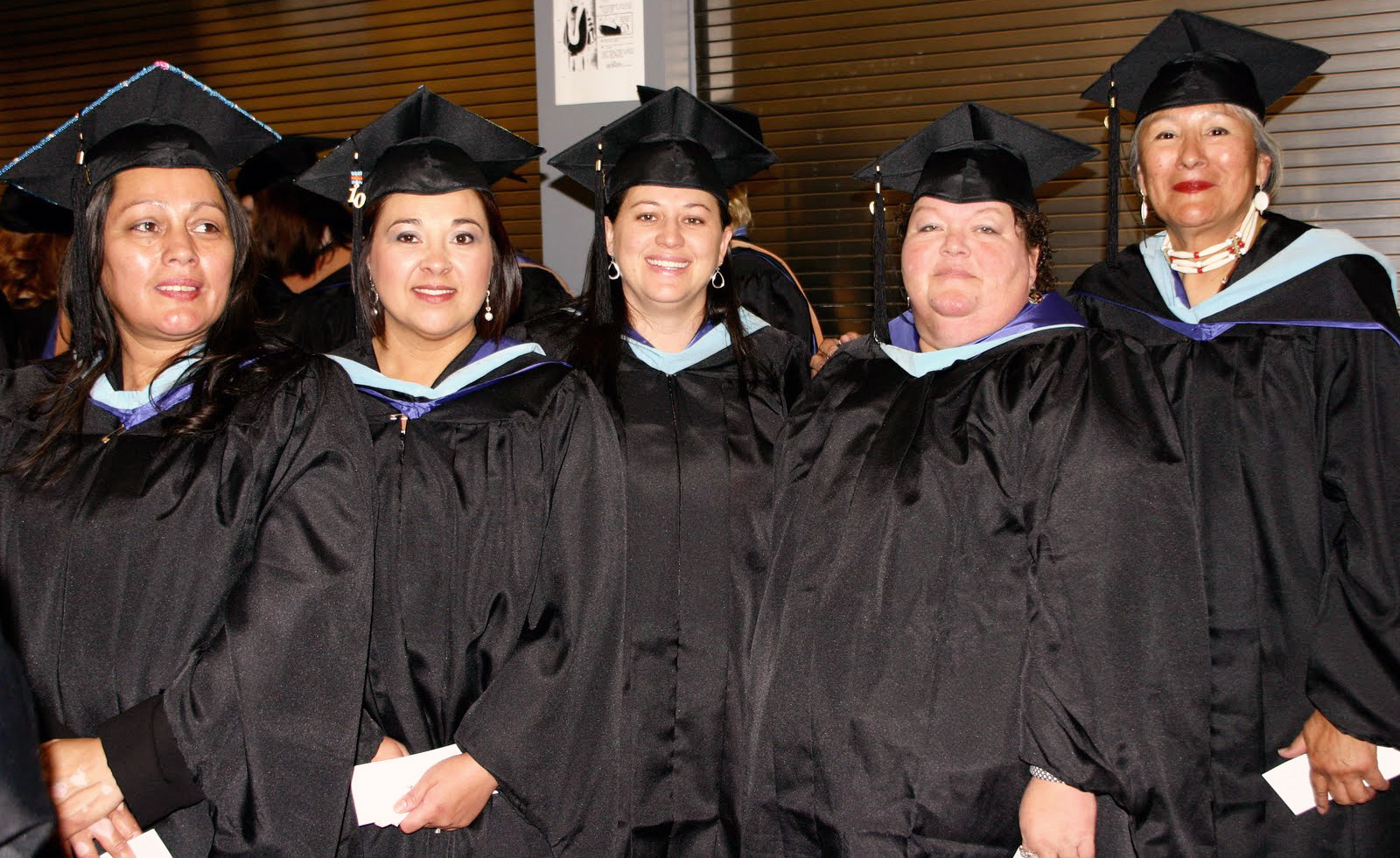
The I LEAD program offers American Indian teachers an opportunity to earn a master's degree in school administration without having to leave their current jobs. The program aims to place new American Indian principals and superintendents in schools with high populations of American Indian students. Thus far, the program has graduated nearly 70 students with 60 percent of those graduates placed in school leadership programs within two years of degree completion.
Appointed by President Obama in 2011, MSU Department of Education alumnus William (Bill) Mendoza continues to serve as Executive Director of the White House Initiative on American Indian and Alaska Native Education.
